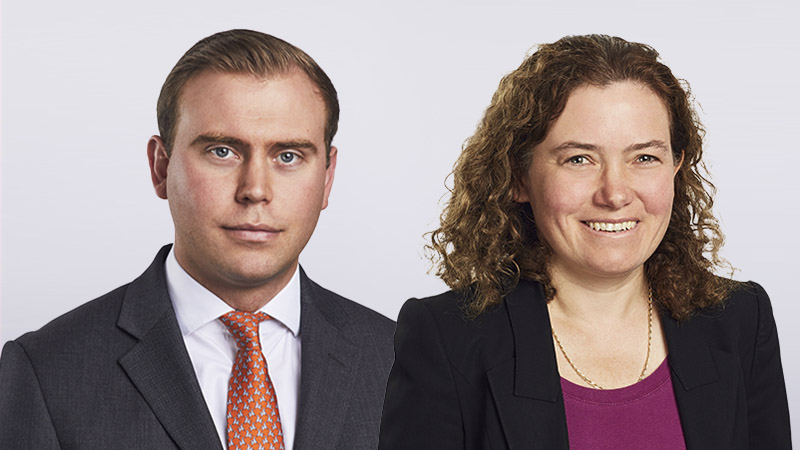As sustainable investing travels through a rocky cycle for investors, CCLA’s Charlotte Ryland and Joseph Hawkes have strayed away from the Tesla bandwagon and opted for more stable footing in the industrial sector.
For the investing duo, who run the CCLA Better World Global Equity fund launched in 2022 and manage CCLA’s overall equity strategy, industrials have been one of the biggest areas of success for finding companies that present opportunities for energy efficiency as well as continued growth.
“Within the industrial sector, there’s some very long term growth drivers that should be sticking around for at least the next 10 to 20 years. It’s all linked around sustainability and the drive for greater energy efficiency,” Hawkes, CCLA’s deputy head of investments says.
“We think that companies whose products and services can enable the automation of industrial processes, if they can drive energy efficiency within a particular industry, or if they enable that transition to a lower carbon economy, then most businesses are going to see growth ahead of the market in terms of their earnings and cash flows.”
Ryland, head of investments, says these businesses also often have repeatable business coming through, which helps to support revenue along with new customers.
The investing duo was drawn to Trane Technologies, a heating and ventilation manufacturer with a focus on energy efficiency. In the past year, its share price has increased 77.4%, and 246.3% in the past five years.
“When we take a step back, and we look at what are the drivers of carbon emissions as it relates to buildings, heating and ventilation systems account for a significant proportion of carbon emissions. The latest products that companies like Trane Technologies can produce can generate significant savings, both in terms of the costs for the building owners, but also in terms of reducing the amount of carbon that’s emitted by heating and cooling, whether it’s an office building or a data centre,” Hawkes says.
“Not only is there pressure from investors and society for building owners and companies to try and reduce their emissions, but there’s lots of regulation, both in the US and Europe, that’s also driving companies down this path.”
While the team focuses on energy efficiency, it’s far from the only criteria that makes a company the right fit. The duo has strayed away from some of the more popular renewable energy companies, such as Tesla, which they explain can become a “cyclical business”.
“We don’t own Tesla, which on the face of it is growing revenue quite quickly. But when you delve into the financials, they’re very messy. And there’s increasingly a huge amount of competition coming from the established carmakers, and you’re seeing in the market quite significant price cuts, which might be good for the consumer, but it’s not good for the company that reduces the costs,” Hawkes said.
“When you look at a company like Tesla, for example, whilst they were clearly first to market and the stock did very well for a number of years, when we assess the competitive environment, pretty much every single car making company on planet earth is investing significantly into electric vehicles. And you’ve got a lot of companies with very deep pockets looking to compete and take market share. So for us, that’s a big red flag as well.”
Trane’s smaller number of competitors, as well as its intellectual property, allows for a level of protection from the competitive dynamics.
Ryland says her team is sometimes asked if quality is the correct investing choice for this point in the investment cycle but said investing in solid companies which have strong balance sheets and can prove resistant to interest rates and other uncertainties are needed now.
“This year could be a slightly more difficult time; markets have rerated quite a long way already. There are certainly some signs of some slowing growth, geopolitics could be quite uncertain this year as well with multiple elections,” Ryland said.
“So for us, quality remains absolutely where you’d want to be if you have an environment that is slightly more tricky.”









